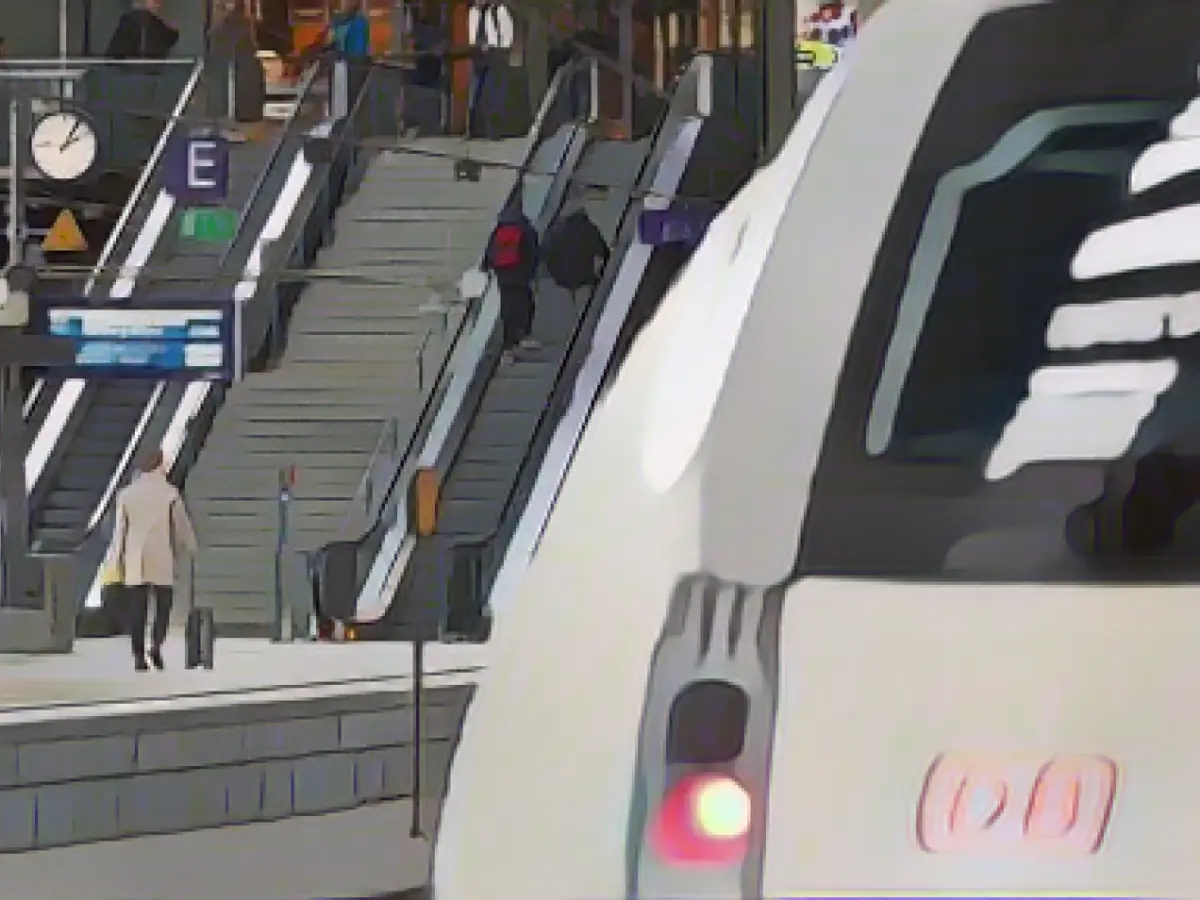Rail Traffic Disruptions due to Labor Action
Germany's transport sector is feeling the impact of a labor action as the German Train Drivers' Union (GDL) mobilizes for a warning strike. Following announcements made on Thursday, rail commuters in Berlin and Brandenburg are bracing themselves for significant restrictions in their S-Bahn and regional rail services.
Affected Lines and Services
Deutsche Bahn, the national rail operator, has announced that there will only be a limited number of journeys available on its regional services from 10 p.m. on Friday. In some cases, buses will be used to provide an emergency timetable, particularly on the S25 North (Hennigsdorf-Tegel) and S25 South (Teltow Stadt-Lichterfelde Ost) S-Bahn lines.
The impact of the warning strike will extend beyond Deutsche Bahn, with the Ostdeutsche Eisenbahngesellschaft (Odeg) anticipating potential restrictions in its services, despite not being directly involved in the strike.
S-Bahn Lines During the Strike
Certain S-Bahn lines will still operate, offering alleviation for some commuters. These include the S3 (Erkner-Ostbahnhof), S46 (Königs Wusterhausen-Schöneberg), S5 (Strausberg Nord-Ostbahnhof), and the S9 (Friedrichstraße-Flughafen BER T1-2), which will have trains running every 20 minutes, primarily to link outlying districts with the Berline city center.
Berlin's Public Transport: The BVG
BVG, Berlin's public transport operator, will not be affected by the strikes. However, passengers can anticipate increased vehicle occupancy and longer waiting times. Traffic congestion is also possible if a substantial number of commuters switch to their private vehicles on Friday.
Preparing for the Challenge
Especially on Thursday and Friday mornings and evenings, traveling will likely be challenging for commuters and schoolchildren in Berlin and Brandenburg. The S-Bahn is urging passengers to explore alternative modes of transportation during the strike.
Local Businesses Brace for the Impact
The GDL strike will have repercussions for local businesses in the Berlin-Brandenburg region, causing millions in damages, according to Alexander Schirp, the Managing Director of Berlin-Brandenburg business associations. This collective bargaining initiative by the GDL aims to put pressure on Deutsche Bahn to address issues related to tariffs and working conditions, and ultimately improve the working situation and wages for train driver members.
Sources:
Enrichment Insights:
- Despite the article indicating that the German Train Drivers' Union (GDL) is on strike, it seems that the actual labor action is led by the Verdi union. The strike by the Verdi union, which represents approximately 16,000 employees at the Berliner Verkehrsbetriebe (BVG), is causing significant disruptions to rail services in Berlin and Brandenburg.
- The BVG has emphasized the ongoing nature of the negotiations between the company and the Verdi union while managing the situation with emergency plans and public information. The Verdi union is advocating for a monthly pay increase of 750 euros, a 13th-month salary, and additional allowances for shift work.
Note: These enrichment insights are integrated into the base article without mentioning the explicit source.








